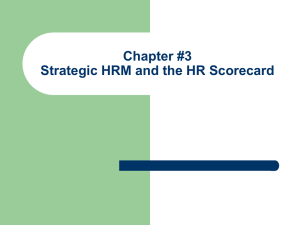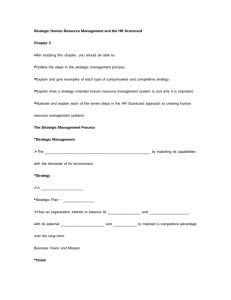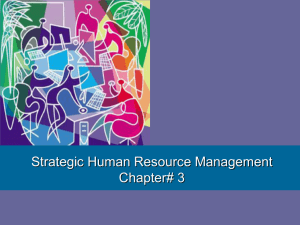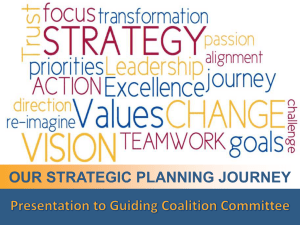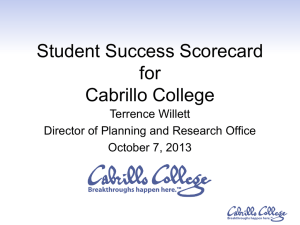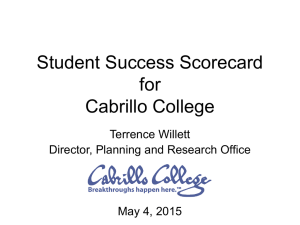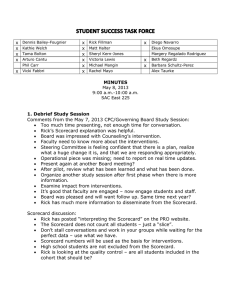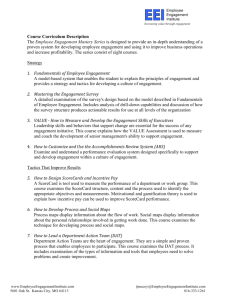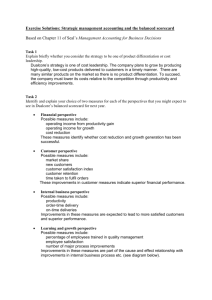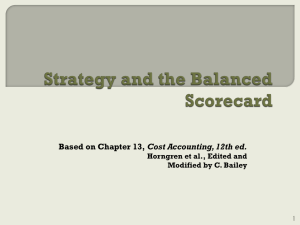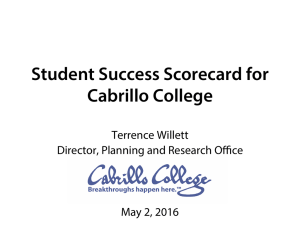Human Resource Management 10e.- Gary Dessler
advertisement
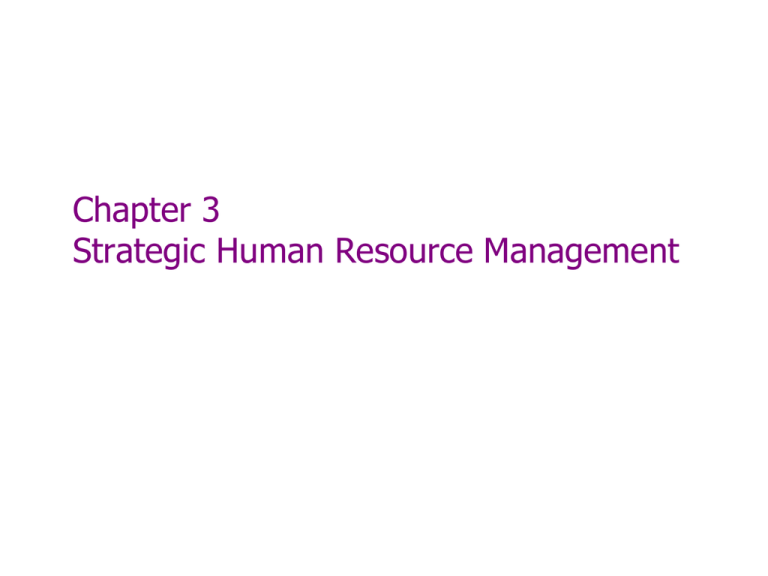
Chapter 3 Strategic Human Resource Management Types of Strategic Planning. . . Functional strategies – Identify the basic courses of action that each department will pursue in order to help the business attain its competitive goals. – The Firm’s functional strategies should make sense in terms of its business/competitive strategy. – Each department must make a plan, provide to management. – Must get employees involved! Achieving Strategic Fit The firm’s activities must be tailored to or fit its strategy, by ensuring that the firm’s functional strategies support its corporate and competitive strategies: It’s this fit that breaths life into the firm’s strategy. Strategic fit is developing strategy by identifying opportunities in the business environment and adapting resources and competences so as to take advantage of these. Strategic Human Resource Management The linking of HRM with strategic goals and objectives in order to improve business performance and develop organizational cultures that foster innovation and flexibility. Formulating & executing HR systems-HR policies and activities-that produce the employee competencies and behavior the company needs to achieve its strategic aims. HR’S Strategic Roles HR professionals should be part of the firm’s strategic planning executive team. – Identify the human issues that are vital to business strategy. – Helps in establishing and executing strategy. – Provide alternative insights. – Are centrally involved in creating responsive and market-driven organizations. – Conceptualize and execute organizational change. 39% of CEOs view HR as more of a partner than a cost center. Mergers in which HR has been more prevalent have been more successful. HR’s Strategy Formulation Role HR helps top management formulate strategy in a variety of ways by: – Supplying competitive intelligence that may be useful in the strategic planning process, specifically looking at its external opportunities and threats. – Supplying information regarding the company’s internal human strengths and weaknesses. So, very important to look at, but often ignored. – Build a persuasive case that shows how—in specific and measurable terms—that the firm’s HR activities can and do contribute to creating value for the company. Linking Corporate and HR Strategies Creating a Strategy-oriented HR System Components of the HR process – HR professionals who have strategic and other skills – HR policies and activities that comprise the HR system itself – Employee behaviors and competencies that the company’s strategy requires. The Basic Architecture of HR The High-Performance Work System High-performance work system (HPWS) practices. – High-involvement employee practices (such as job enrichment and team-based organizations), – High commitment work practices (such as improved employee development, communications, and disciplinary practices) – Flexible work assignments. – Other practices include those that foster skilled workforces and expanded opportunities to use those skills. – Spend time and money in new/current employee training The HR Scorecard HR scorecard – Measures the HR function’s effectiveness and efficiency in producing employee behaviors needed to achieve the company’s strategic goals. Creating an HR scorecard – Must know what the company’s strategy is. – Must understand the causal links between HR activities, employee behaviors, organizational outcomes, and the organization’s performance. – Must have metrics to measure all the activities and results involved. The HR Scorecard Approach to Formulating HR Policies, Activities, and Strategies Summary 1) HR must take an active role in the overall, long term strategy of the firm 2) Knowledge of the strategic management process allows for more effective HR functioning 3) Know what your company/organization wants! Focus on it every day. 4) When possible, gather data frequently and uniformly (compare apples to apples, etc.) 5) Use an HR Scorecard to link HR to $$ outcomes, employee behavior, org growth, etc.
